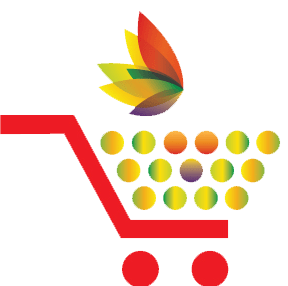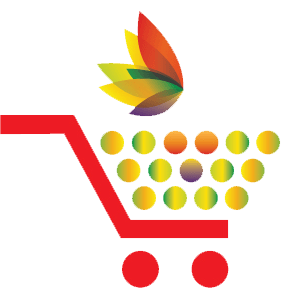Sewing is a creative and fulfilling hobby that allows you to make unique and personal items for yourself or your home. A sewing machine is an essential tool for any sewer, and choosing the right one can be overwhelming. With so many options available, it can be difficult to know which type of sewing machine is best for home use. In this article, we’ll help you navigate the world of sewing machines and provide you with the information you need to choose the best machine for your individual needs. Whether you’re just starting out or are an experienced sewer, this guide will provide you with the information you need to choose the right sewing machine for home use.
Which Type Of Sewing Machine Is Best For Home Use
The best type of sewing machine for home use depends on your individual needs and preferences. Here are a few popular options to consider:
- Mechanical Sewing Machines: Mechanical sewing machines are a great option for beginner sewers or those on a budget. They are simple to operate, durable, and often have a limited number of stitches, making them a great choice for basic sewing tasks.
- Computerized Sewing Machines: Computerized sewing machines offer more advanced features and a wider variety of stitches. They are easier to use and often come with built-in stitch patterns and automatic needle threading. They are a good choice for intermediate and advanced sewers.
- Serger/Overlock Machines: Serger/overlock machines are designed to create a finished edge on your fabric, making them a great choice for knitwear and other stretchy fabrics. They are a good choice for those looking to add professional-looking finishes to their projects.
- Multi-Purpose Sewing Machines: Multi-purpose sewing machines offer a range of features and functions, making them a versatile choice for home sewers. They often come with a variety of stitch patterns and may also include features like automatic needle threading and built-in buttonholes.
- Portable Sewing Machines: Portable sewing machines are a great option for those who have limited space or who need to sew on-the-go. They are small, lightweight, and often have a limited number of stitches, making them a good choice for basic sewing tasks.
- Embroidery Machines: Embroidery machines are designed for adding decorative stitches and designs to your projects. They often come with built-in designs and allow you to import designs from your computer. They are a good choice for those who want to add a creative touch to their projects.
- Quilting Machines: Quilting machines are designed for sewing through multiple layers of fabric and batting, making them a great choice for quilting projects. They often have a large workspace and a specialized throat plate, which makes it easier to maneuver larger quilts.
Ultimately, the best sewing machine for home use will depend on your personal needs and the types of projects you plan to work on. Consider your skill level, budget, and the features you’re looking for before making a decision. It may also be helpful to try a few different machines in-person before making a final decision.
Buying Guide
When purchasing a sewing machine for home use, there are several factors to consider to ensure you choose the right machine for your needs. Here is a buying guide to help you make an informed decision:
- Budget: Determine how much you’re willing to spend on a sewing machine. Keep in mind that you’ll get what you pay for, and a more expensive machine will often have more features and be of higher quality.
- Purpose: Consider the types of projects you plan to work on. If you’re just starting out, a basic machine with a limited number of stitches will likely suffice. If you’re an experienced sewer or plan to work on more advanced projects, you may want to consider a machine with more advanced features.
- Stitch Options: Consider the number of stitches you need and the types of stitches you’ll be using. Some machines come with a limited number of stitches, while others have a wide variety of stitches, including decorative stitches and automatic buttonholes.
- Ease of Use: Look for a machine that is easy to thread, use, and maintain. Consider features like automatic needle threading, simple stitch selection, and easy-to-understand controls.
- Size and Portability: Consider the size and weight of the machine, especially if you have limited space or plan to take your machine with you to classes or on the go.
- Warranty: Make sure to choose a machine with a warranty and consider purchasing an extended warranty for added peace of mind.
- Customer Reviews: Read customer reviews and compare the features, performance, and quality of different machines. Consider purchasing from a reputable retailer that offers good customer service.
By considering these factors, you can make an informed decision and choose the right sewing machine for your home. It may also be helpful to try a few different machines in-person before making a final decision, and don’t hesitate to ask for help or seek advice from more experienced sewers. With the right machine, you’ll be able to create beautiful and personalized projects with ease.
Frequently Asked Questions (FAQ’s)
Q: What type of sewing machine is best for beginner sewers?
A: For beginner sewers, a basic mechanical sewing machine or a computerized sewing machine with a limited number of stitches is a good choice. These machines are simple to use and often more affordable, making them a great option for those just starting out.
Q: What type of sewing machine is best for advanced projects?
A: For advanced projects, a computerized sewing machine with a wide range of features and stitches is a good choice. Look for a machine with advanced features like automatic needle threading, a wide variety of stitch options, and easy-to-use controls.
Q: What type of sewing machine is best for quilting?
A: For quilting, a specialized quilting machine is a good choice. These machines often have a large workspace and a specialized throat plate, which makes it easier to maneuver larger quilts.
Q: What type of sewing machine is best for embroidery?
A: For embroidery, a specialized embroidery machine is a good choice. These machines often come with built-in designs and allow you to import designs from your computer.
Q: What type of sewing machine is best for those with limited space?
A: For those with limited space, a portable sewing machine is a good choice. These machines are small, lightweight, and often have a limited number of stitches, making them a great option for basic sewing tasks.
Q: What type of sewing machine is best for those on a budget?
A: For those on a budget, a basic mechanical sewing machine is a good choice. These machines are simple to use, durable, and often more affordable than computerized machines, making them a great option for those looking to save money.
By considering these questions and answers, you’ll be able to choose the best type of sewing machine for your home and your individual needs. Don’t hesitate to ask for help or seek advice from more experienced sewers, and happy sewing!
Conclusion
In conclusion, choosing the right sewing machine for home use depends on your individual needs and preferences. Consider factors such as budget, purpose, stitch options, ease of use, size and portability, warranty, and customer reviews when making your decision. Whether you’re just starting out or are an experienced sewer, there is a sewing machine out there that’s right for you. Don’t hesitate to ask for help or seek advice from more experienced sewers, and happy sewing!



